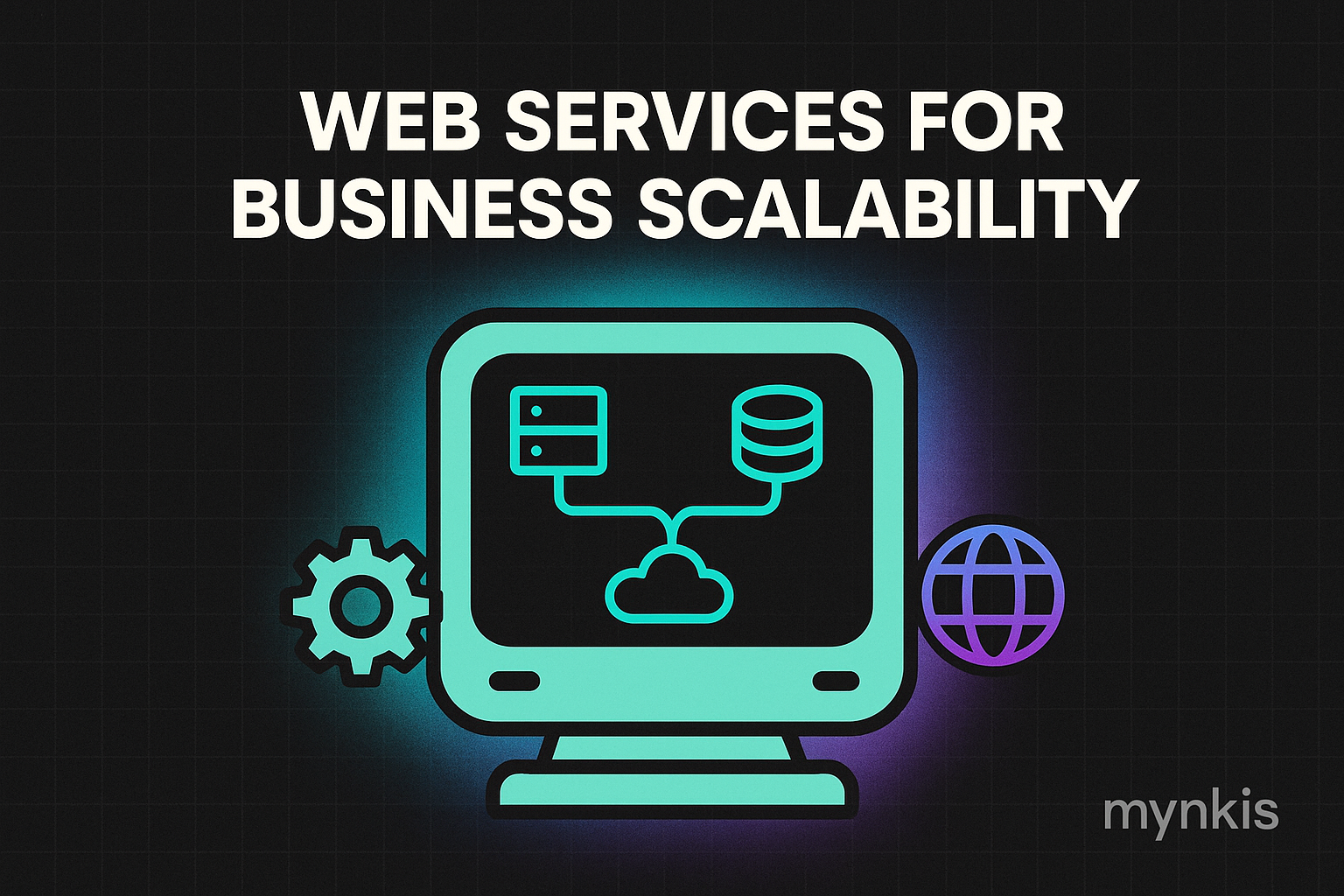Schedule a Demo
Launching a Minimum Viable Product (MVP) can feel like a high-stakes game of trial and error. In my work with founders, I've seen first-hand how crucial it is to have web services that support rapid iteration. Think of web services as the behind-the-scenes magic that keeps your MVP agile and responsive to user feedback. They're the unsung heroes that let you quickly pivot based on real-world data. Without them, iterating your product to meet market demands is like trying to turn a battleship in a bathtub.
The leap from MVP to a full-fledged enterprise solution requires a solid tech infrastructure. Here's where web services really come into play. They're not just nice-to-haves; they're essential for building a scalable, robust system that can grow with your business. Imagine trying to scale without them—it's like attempting to construct a skyscraper on quicksand. With the right web services, you can establish a foundation that supports complex applications and integrates seamlessly with other systems.
APIs, or Application Programming Interfaces, are the linchpin of modern web services. They allow different software systems to communicate with each other, creating a cohesive tech environment. In a world where companies need to adapt quickly, APIs provide the flexibility to integrate new technologies as they emerge. I've worked with startups that leveraged APIs to connect their platforms with popular services like payment gateways and social media platforms, making their products more versatile and user-friendly.
Reliability and performance are non-negotiable in the enterprise world. Web services can significantly boost both. By offloading tasks to specialized services—like content delivery networks (CDNs) for fast content serving or load balancers to distribute traffic—you ensure your application remains responsive and reliable. In my experience, businesses that prioritize these aspects of their web services infrastructure are the ones that keep users coming back, even as their scale increases.
Building and maintaining a full-scale enterprise solution is expensive, no doubt about it. But web services can help manage those costs effectively. By using cloud-based services, companies can scale their resources up or down based on demand, paying only for what they need. This pay-as-you-go model can be a game-changer, especially for startups and growing businesses. It's like renting a space that expands or contracts with your business needs, rather than buying a building that's too big or too small.
Security is paramount in enterprise-level software development. Web services can bolster your security framework by providing dedicated security services. These services help protect against common threats like data breaches and DDoS attacks. In my interactions with c-level executives, I've found that many view security not just as a necessity, but as a competitive advantage. Robust security measures through web services can give customers peace of mind, knowing their data is safe.
As companies grow, they often need to integrate with multiple systems—from CRM to ERP to third-party software. Web services make this integration smoother. They act as the connective tissue between different platforms, ensuring data flows seamlessly. I've seen businesses struggle with siloed systems that lead to inefficiency and data duplication. With the right web services, you can avoid these pitfalls and create a unified tech ecosystem.
Web services aren't just about the here and now; they're about preparing for what's next. By adopting cutting-edge technologies like microservices architecture, businesses can future-proof their operations. Microservices allow companies to break down their applications into smaller, manageable components that can be developed, deployed, and scaled independently. This modularity makes it easier to incorporate new features and technologies without overhauling your entire system.
Let's talk about real-world examples. A tech startup I collaborated with used web services to transition from an MVP to a fully operational e-commerce platform. They utilized APIs to integrate their payment system, inventory management, and customer analytics, resulting in a seamless user experience. Another case involved a healthcare firm that leveraged cloud-based services to securely store and manage patient data, ensuring compliance with regulations like HIPAA.
Not all web services are created equal. Choosing the right mix is crucial for your business's success. In my experience, companies that take the time to evaluate their needs and select tailored services often reap greater benefits. Whether it's selecting a robust database service, a scalable hosting solution, or a secure payment gateway, the right choices can make a significant difference in performance and scalability.
Adopting new web services can come with a learning curve, no doubt. But many providers offer extensive documentation, tutorials, and community support to help ease the transition. I always recommend taking advantage of these resources. They can be invaluable in getting your team up to speed and maximizing the benefits of your chosen services.
Flexibility and adaptability are key in today's fast-changing tech landscape. Web services enable businesses to stay agile, adapting to new trends and technologies as they emerge. Whether it's shifting to a new programming paradigm or integrating with emerging platforms, the right web services framework gives you the tools to stay ahead of the curve.
Lastly, leveraging web services can give you a competitive edge. Companies that use them effectively can scale faster, offer more features, and provide a better user experience. I've seen businesses outpace their competitors by using web services to launch new features and services quickly, while others are still stuck in development hell.
As we look to the future, the role of web services in business development will only grow. They are the building blocks that enable companies to move from MVP to enterprise with confidence and efficiency. Whether you're a founder just starting out or a c-level executive overseeing a large corporation, understanding and utilizing web services is essential for success in the digital age.
